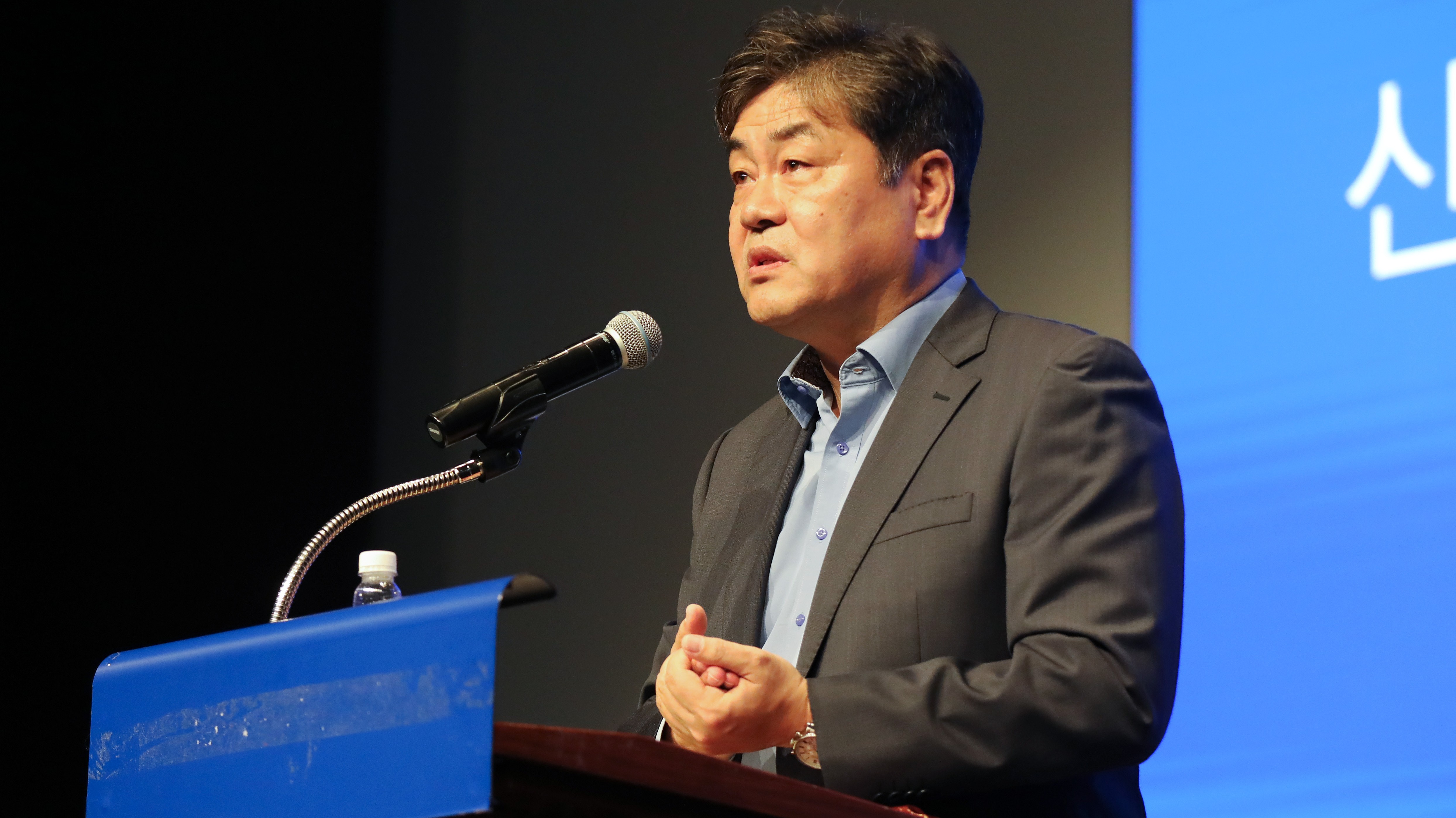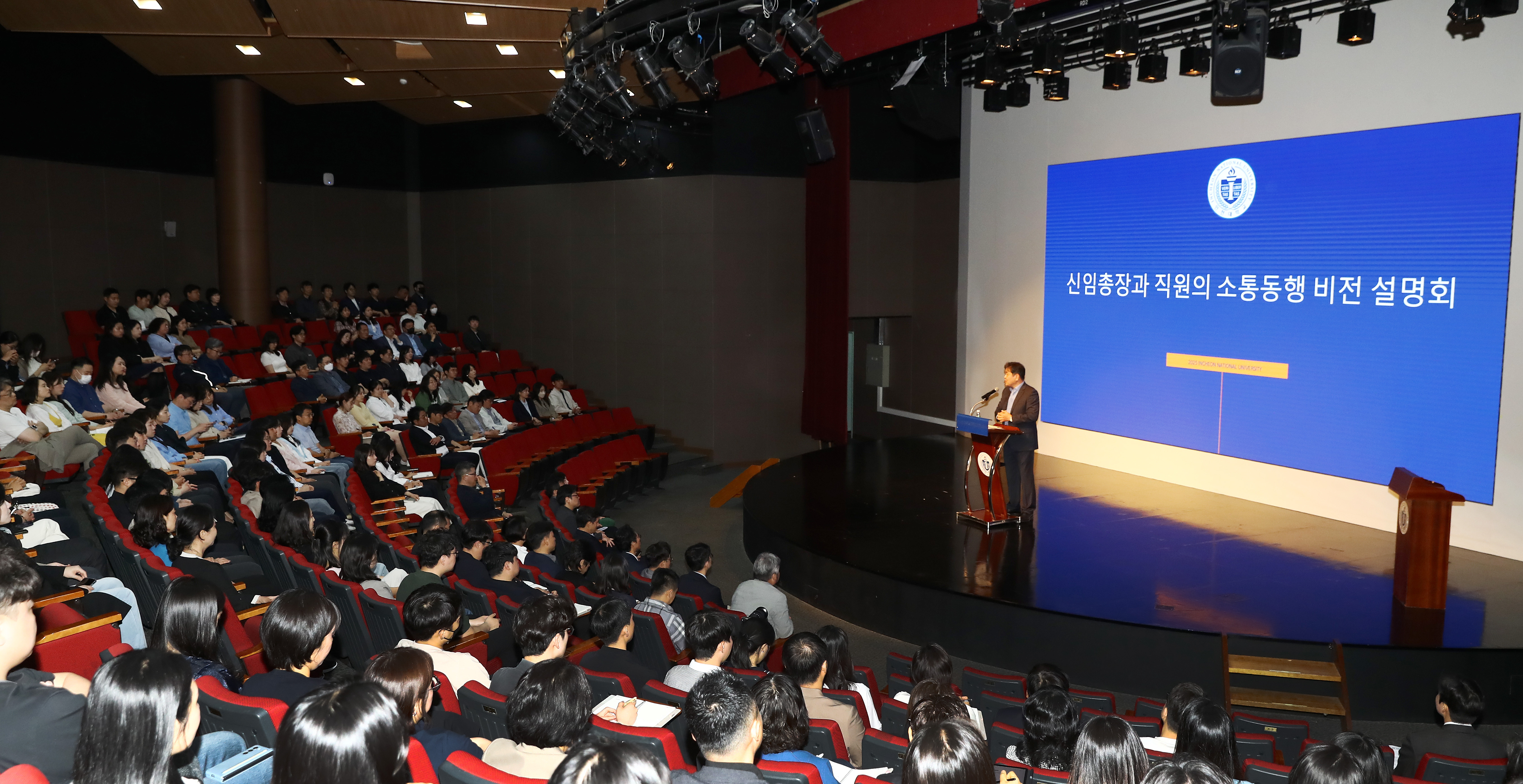President In Jae Lee of Incheon National University Holds ‘Communication and Vision Sharing Meeting’ with Staff
- 글번호
- 407309
- 작성일
- 2025-06-05
- 수정일
- 2025-06-05
- 작성자
- 홍보팀 (032-835-9490)
- 조회수
- 891


Proposed Three Key Visions: Innovative Education, Research-Oriented University, and Regional Flagship University
On May 26, President In-jae Lee of Incheon National University held his first official communication session with faculty and staff, titled the “Vision Briefing with Faculty and Staff,” to share the major policy directions of the university's 4th foundation board and outline its long-term development strategy. The session also included an open Q&A segment to facilitate direct communication.
President Lee identified three key visions for the university’s future: ▲Innovative Education ▲Research-Oriented University ▲Regional Flagship University. Emphasizing that "a university where students are happy is a good university," he pledged to restructure undergraduate curricula to create a student-centered learning environment. He also expressed plans to strengthen research capabilities in cutting-edge fields based on fundamental academic disciplines. Furthermore, he laid out his vision to reinforce Incheon National University’s role as a hub university loved and supported by the local community, including initiatives such as establishing a public medical school and repurposing the Jemulpo Campus.
To realize these goals, he announced plans for swift organizational restructuring, including the reorganization of academic departments, enhancement of graduate education, expansion of industry-academic cooperation functions, and the creation of a new Office of International Cooperation.
During the Q&A session, faculty and staff raised a variety of topics, including promotion criteria, non-executive roles, labor negotiations, communication channels, and commuting policies. President Lee responded to each question in detail, reinforcing his commitment to transparent dialogue.
In closing, President Lee stressed the importance of faculty and staff competencies, calling for expanded opportunities for professional development and responsible administration. He also encouraged staff to "press the warning button" if the university strays in the wrong direction, underlining the importance of a horizontal and open communication culture. Lastly, he urged for performance-based personnel management and strong adherence to integrity as a public institution.

